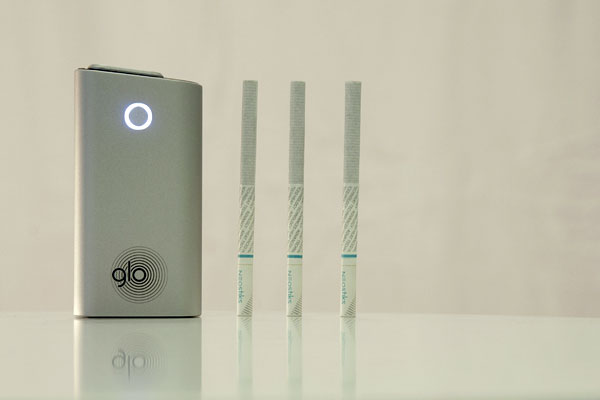Philip Morris International and three of its top executives have been named as defendants in a class action being brought on behalf of anyone who purchased Philip Morris stock between February 8, 2018 and April 18, 2018, according to a story by Nickeesha Swaby in Courthouse News.
The action has been filed by lead plaintiff, the City of Westland Police and Fire Retirement System, in the US District Court for the Southern District of New York.
CEO Andre Calantzopoulos, CFO Martin G. King, and COO Jacek Olczak are named as defendants along with the cigarette multinational.
According to the complaint, PM was experiencing lower sales for years attributed to a decline in smokers worldwide, but throughout the period in question, investors were assured that ‘new sales initiatives’ and ‘favourable sales trends’ were working to combat the issue.
The class is represented by Samuel H. Rudman of Robbins Geller Rudman & Dowd LLP in Melville, N.Y., with David C. Walton and Brian E. Cochran in San Diego and Thomas C. Michaud of Vanoverbeke, Michaud & Timmony in Detroit.
Meanwhile, the Rosen Law Firm, a global investor-rights law firm, announced on Saturday the filing of a class action lawsuit on behalf of purchasers of the securities of Philip Morris International from February 8, 2018 through April 18, 2018, both dates inclusive (Class Period). The lawsuit seeks to recover damages for Philip Morris investors under the federal securities laws, according to a Business Wire report.
The lawsuit alleges that defendants throughout the Class Period made false and/or misleading statements and/or failed to disclose that: (1) Philip Morris was experiencing a faster decline in overall cigarette and e-cigarette (or “heated tobacco”) sales volumes during the first quarter of 2018 than investors had been led to believe; (2) Philip Morris’ much-lauded sales initiatives had stalled; (3) Philip Morris was experiencing adverse sales headwinds in key markets; and (4) as a result of the foregoing, defendants’ statements about Philip Morris’ business, operations, and prospects, were materially false and/or misleading and/or lacked a reasonable basis. When the true details entered the market, the lawsuit claims that investors suffered damages.
Category: Litigation

Investors in class actions

Graphic warnings on order
A US federal court yesterday ordered the Food and Drug Administration (FDA) to issue expeditiously a final rule requiring graphic health warnings on cigarette packs and advertising, as mandated by a 2009 federal law, according to a statement posted on the Campaign for Tobacco-Free Kids website.
The statement was attributed to the American Academy of Pediatrics, the Massachusetts Chapter of the American Academy of Pediatrics, the American Cancer Society, the American Cancer Society Cancer Action Network, the American Heart Association, the American Lung Association, the Campaign for Tobacco-Free Kids and the Truth Initiative
The ruling by district judge Indira Talwani of the district court for the District of Massachusetts was said to have been in response to a lawsuit filed in October 2016 by eight public health and medical groups and several individual pediatricians.
‘Judge Talwani agreed with the health groups that the FDA has both “unlawfully withheld” and “unreasonably delayed” agency action to require the graphic warnings,’ the statement said.
‘Judge Talwani set a deadline of September 26, 2018, for the FDA to “provide to this court an expedited schedule for the completion of outstanding studies, the publication of the proposed graphic warnings rule for public comment, review of public comments, and issuance of final graphic warnings rule in accordance with the Tobacco Control Act.’
The statement described the ruling as a major victory in the fight against tobacco use, which was said to be the nation’s number one cause of preventable death.
‘In accordance with the court’s order, we urge the FDA to quickly issue, finalize and implement a rule requiring graphic cigarette warnings,’ the statement said. ‘The current US cigarette warnings, which are printed on the side of cigarette packs and haven’t been updated since 1984, are stale, unnoticed and a major impediment to greater progress in reducing cigarette smoking.
‘Studies around the world have shown that graphic warnings are most effective at informing consumers about the health risks of smoking, preventing children and other non-smokers from starting to smoke, and motivating smokers to quit.
‘Requiring graphic cigarette warnings in the US will protect kids, save lives and reduce tobacco-related health care costs, which total $170 billion a year.’
Warnings on hold
The US Food and Drug Administration has issued a new guidance about how it intends to comply with a recent court order by not enforcing the warning statement requirements for cigars and pipe tobacco products until 60 days after the final decision of the Plaintiffs’ appeal.
In addition, the guidance, Compliance Policy for Certain Labeling and Warning Statement Requirements for Cigars and Pipe Tobacco, states that the agency does not intend to enforce the labeling requirements under sections 903(a)(2) and 920(a) of the Food, Drug, and Cosmetic Act for cigars and pipe tobacco while the injunction remains in effect. During this time, however, cigar and pipe tobacco firms may add the warnings and make these labeling changes.
In a note issued through its Center for Tobacco Products, the FDA said it had revised also the following guidance documents to reflect the compliance policy outlined above:- Submission of Warning Plans for Cigars
- FDA Deems Certain Tobacco Products Subject to FDA Authority, Sales and Distribution Restrictions, and Health Warning Requirements for Packages and Advertisements
- Compliance Policy for Required Warning Statement on Small-Packaged Cigars
- Extension of Certain Tobacco Product Compliance Deadlines Related to the Final Deeming Rule
- Tobacco Retailer Training Programs
The note drew attention also to a new tobacco compliance webinar, Retailer Requirements: New Warning Statement Requirements for Certain Tobacco Products. The webinar is said to address the addictiveness warning statement requirement and which tobacco products it applies to, and to answer some frequently asked questions from tobacco retailers about the warning statement requirements.
The FDA said it had created too several visual examples of the required addictiveness warning statement on different tobacco product packaging, and that it had developed a side-by-side product and warning statement chart.
A holey argument
A Netherlands-based anti-tobacco coalition comprising ex-smokers and medical associations is threatening to bring legal action to ban cigarettes that exceed ‘European norms for nicotine, tar and carbon monoxide,’ according to a story in DutchNews.nl relayed by the TMA.
Tests performed on 100 brands of cigarettes, the results of which were published by the Dutch public health institute RIVM in June, were said to have found that ‘the amount of tar can be up to 26 times the official norm’, while ‘nicotine and carbon monoxide levels were also high’.
The tests were carried out with the ventilation holes in the cigarette filters covered, whereas the official government test leaves these holes uncovered, which allows more environmental air – and therefore less smoke – to enter the testing machine.
Both the RIVM and the health and safety watchdog NVWA had previously pulled out of a commission which designed the European measuring method because 10 of the 12 members worked in the tobacco industry.
Philip Morris and British American Tobacco said their cigarettes complied with European norms and national Dutch legislation regarding tobacco.
“[T]he European test was never meant to measure “actual exposure” of smokers to tar, nicotine and carbon monoxide,’ said Peter van den Driest, spokesperson for Philip Morris. ‘It was meant to enable to compare brands of cigarettes that are smoked in an identical way.’
The coalition said that if the safety watchdog NVWA failed to enforce the tobacco legislation, it would go to court.
This issue has been the subject of at least one question posed to the European Commission. Last month, in answer to one such question, the Commission said that it was aware of the limitations of currently available methods for the measurement of cigarette deliveries of tar, nicotine and carbon monoxide.
It said that this issue was carefully considered during the revision of the Tobacco Products Directive (TPD) and that it was concluded there was insufficient evidence that would support the revision of the existing provisions.
The Commission said the results presented recently by the RIVM were in line with the measurements conducted by Hammond et al. in 2006, which indicated that ‘none of the smoking regimens currently in use adequately “represent” human smoking behaviour and none are significantly associated with measures of nicotine uptake among human participants’.
‘As the Commission pointed out in its replies to written questions E-003557/2017 and E-001317/2018, Article 4(3) of TPD empowers the Commission to adopt delegated acts to adapt the measurement methods, based on scientific and technical developments or internationally agreed standards,’ the Commission said. ‘The Commission will report on the application of the TPD by 2021.’
Tenants fight smoking ban
Tenants are challenging a Housing and Urban Development rule that requires local public housing authorities across the US to prohibit people from smoking in their homes, according to a story by Jacob Sullum for Reason magazine.
A policy that is scheduled to take effect on Monday prohibits smoking in and near public housing throughout the country, affecting 1.2 million households in units managed by about 3,300 local agencies.
Sullum quoted a 2016 Observer editorial, as saying the policy ‘may be the most far-reaching, intrusive and over-reaching executive order of the entire Obama administration’.
In a lawsuit filed yesterday, six smokers who live in public housing argue that the ban violates their rights, exceeds the Department of Housing and Urban Development’s statutory authority, cannot be justified as a regulation of interstate commerce, and unconstitutionally commandeers state and local officials by ordering them to carry out federal policy.
The smoking ban, which covers low-income housing that is federally subsidized but owned and operated by local public housing authorities, applies to living units as well as common areas and extends to a zone 25 feet around each building.
New purulent warnings
India’s Supreme Court yesterday declined to stay the central Government’s new tobacco-packaging rules that require an increase in the size of pictorial health warnings from 40 percent to 85 percent from September 1, according to a story by Bhadra Sinha for the Hindustan Times.
The Cigarettes and other Tobacco Products (Packaging and Labelling) Second Amendment Rules, 2018, require the rotation of graphics and the replacement of current images. The image of a person’s throat with a hole in it, for instance, is to be replaced with more “gruesome pictures of a person’s lips with diseased and purulent growth”.
And in line with this change, the written warning, ‘Smoking causes throat cancer’ is to be replaced with ‘Smoking causes painful death’ and Tobacco causes cancer’, in white upper-case letters against a red background.
The rules require also that packs carry a quit number through which tobacco-product users can connect with online assistance.
Records release ruled out
The Canadian province of British Columbia (BC) does not have to hand over the detailed health-care records of millions of people requested by Philip Morris International, according to a story by Catharine Tunney for CBC News reporting on a decision by Canada’s top court.
Tunney said that a unanimous Supreme Court decision on Friday morning had cleared a hurdle in the province’s quest to sue cigarette companies for billions of dollars in health-care costs.
Writing for the court, Justice Russell Brown found the health care databases PMI wanted contained information about individuals whose privacy the province was obligated to protect.
The ruling is the latest chapter in BC’s legal fight to force cigarette makers such as PMI to compensate the province for the cost of treating tobacco-related illnesses, a battle that started in the late 1990s.
PMI had argued it needed unfettered access to individuals’ health data to defend itself in court.
The province’s lawyers argued that releasing individuals’ health information – even anonymously – could violate privacy laws.
Time called on snus case
A high court ruling in Malta has declared that the man accused of trading in influence and complicity in a request for a €60 million bribe from a Swedish tobacco company, had his human rights breached when the Attorney General refused to declare his evidence closed, according to a story by Matthew Vella for Malta Today.
The ruling in favour of restauranteur Silvio Zammit was handed down by the Court of Constitutional Appeal, which confirmed a decision by the civil court in its constitutional jurisdiction.
Zammit was accused in 2012 of having requested the bribe from snus manufacturer, Swedish Match, and the European Smokeless Tobacco Council (ESTOC), a lobby group, in a bid to convince the-then European Commissioner for health to lift an EU ban on snus, which can be sold legally in Sweden but may not be sold in other European countries.
In its decision, the Court said the law courts hearing the compilation of evidence against Zammit could not delay the process any longer over the inability to summon a witness, who is based in Belgium, to testify in the proceedings.
It said the Attorney General, who appealed the decision that found for Zammit, had the onus to bring the ESTOC secretary, Inge Delfosse, to testify in Malta and not use this snag as an excuse to let the case gather dust on a shelf.
The case against Zammit was filed by the Malta police in 2012 but the Attorney General has so far refused to declare his evidence closed after the last witness refused to testify in the bribery case.
Spending questioned
The Indonesian Consumers Foundation (YLKI) has criticized the Government for ‘wasting the state budget’ on challenging Australia’s standardized-tobacco-packaging law in a recent trade dispute at the World Trade Organization (WTO), according to a story in The Jakarta Post.
The Post story said the WTO had rejected a complaint filed by Indonesia, Cuba, Honduras and the Dominican Republic against Australia, concluding that the Australian policy did not violate fair trade rules and helped reduce tobacco consumption.
The four countries had argued that Australia’s standardized-tobacco-packaging policy had violated tobacco companies’ trademarks and intellectual property rights.
“The case incurred financial losses [to Indonesia] because the Government spent money from the state budget to hire an international lawyer,” YLKI chairman Tulus Abadi was quoted as saying yesterday.
The Supreme Audit Agency and the Corruption Eradication Commission should audit the funds the Government had spent on hiring the lawyer, he added.
Tulus said the WTO decision was foreseeable and accused the Government of not supporting international campaigns on reducing tobacco consumption.
Standardized-tobacco-packaging was part of a global tobacco control campaign that aimed to deter smoking by cutting the positive associations linking cigarette brands and tobacco consumption.
It required all branding to be removed from cigarette packs and mandated health warnings.









